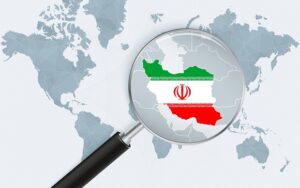The Escalating Tensions: Israel, Iran, and the Global Ramifications
As we navigate through a world increasingly defined by geopolitical strife, the recent escalation in Israeli-Iranian tensions reveals potential implications for global security and economics that are hard to ignore. At Extreme Investor Network, we strive to bring you unique insights that can help investors and analysts alike assess the broader impacts of these events.
Operation Rising Lion: A Bold Military Maneuver
On June 13, 2025, Israel launched Operation Rising Lion, an extensive military operation aimed squarely at dismantling the perceived threats from Iran’s nuclear and ballistic missile programs. Utilizing a combination of precision airstrikes and covert operations, including Mossad’s infiltration of Iranian facilities with small explosive drones, Israel aimed to incapacitate key Iranian leadership and its nuclear infrastructure.
The operation reportedly led to the deaths of over 20 senior Iranian commanders and nine nuclear scientists, significantly damaging several critical sites. However, Israel’s Prime Minister, Benjamin Netanyahu, lamented that total disarmament without U.S. support remains elusive. This pointedly highlights a critical facet of modern geopolitics: the intertwining of military strategy and international alliances.
The Political Landscape: Allies and Adversaries
Netanyahu has characterized this operation as vital for Israel’s survival, framing the conflict as a battle against an "existential threat." Surprisingly, Israel chose to bypass the United Nations Security Council (UNSC), reflecting a lack of faith in international institutions and a unique standpoint from the Israeli leadership, especially given Netanyahu’s complex legal challenges.
According to Netanyahu, “We’re geared to do whatever is necessary to achieve our dual aim.” This raises questions about the stability of the Iranian regime and the potential consequences—for both nations—if regime change becomes part of Israel’s longer-term goals.
America’s Role and Responses
While former U.S. President Donald Trump sought to distance the U.S. from Israel’s military actions, he maintained a firm warning towards Iran, asserting that any aggression against U.S. interests would elicit a powerful response. Trump suggested that Iran could mitigate tensions by ceasing its nuclear aspirations, yet Tehran’s leaders dismiss negotiations under duress—a pivotal rhetoric shaping this standoff.
Ayatollah Ali Khamenei has expressed Iran’s deeply entrenched resentment towards Israel, claiming that the attacks could not have occurred without the tacit approval of the U.S. This perception of U.S. involvement heightens the risk of broader military engagement in the region.
The Bigger Picture: Geopolitical Implications
The intricate web of alliances complicates matters. Iran’s growing ties with Russia and China present a concerning landscape that deepens the geopolitical stakes. The control of critical maritime passageways like the Strait of Hormuz, vital for oil transport, adds layers to the strategy at play. Analysts at Extreme Investor Network point out that the potential for a proxy war, involving not just regional players but larger nuclear powers, cannot be overlooked.
Moreover, there are real financial ramifications for investors to watch. Iran has begun to trade oil for gold with countries such as India and China, thus circumventing the dollar-dominated global trading system. History teaches us that similar movements by past leaders, such as Saddam Hussein and Muammar Gaddafi, often precipitated dire consequences.
The Risk of Miscalculation
Should this conflict escalate into a more extensive confrontation, the ramifications could ripple across global markets. The current geopolitical landscape hints at a significant shift, with the BRICS nations solidifying their stance against the West. In a world where nuclear capabilities are in play, the stakes are about more than bilateral relations—they touch on the summit of global stability.
At Extreme Investor Network, we’re committed to providing insights that anticipate and adapt to these complex dynamics. As investors and stakeholders, understanding the economic undercurrents in these geopolitical events is crucial for navigating future challenges.
Conclusion: A Crucial Moment for Global Stability
The situation between Israel and Iran remains fluid and precarious. With potential involvement from global powers, the ramifications will shape international relations and secure markets for years to come. Keep a close eye on developments in this region, as the consequences will extend far beyond its borders.
For more in-depth analysis and timely updates, continue to engage with Extreme Investor Network, where we help you glean actionable insights from complex economic landscapes.

